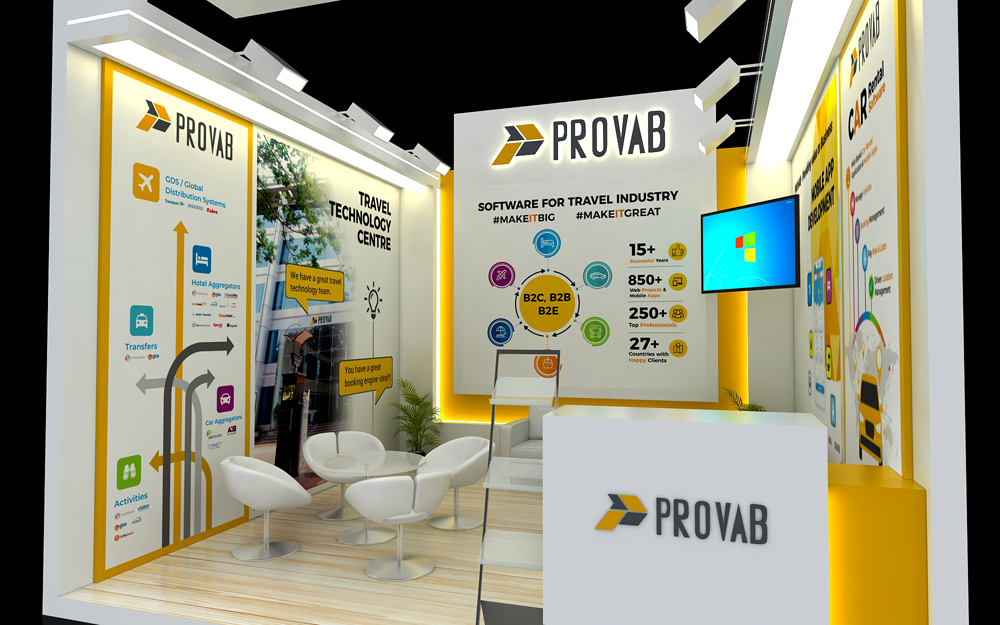IATA offers support to rollout of radio frequency identification for baggage
Improving baggage handling operations is paramount to ensuring that the travel industry is ready to cope with the doubling in passenger demand over the next two decades and meeting the evolving needs of passengers for real time baggage information. Radio Frequency Identification (RFID) for baggage tracking provides the data that allows airlines to efficiently track the bag through all airport processes.
With IATA’s Resolution now in effect, airlines have started to implement baggage tracking. IATA recommends the use of RFID technology, which is much more effective that the bar code technology mostly in use currently. The IATA standard for RFID ensures that all baggage can be easily identified thanks to the unique identifier provided by RFID. RFID also meets passenger expectations for real time tracking of baggage.
>> Online Booking System for Travel Agency : Connect with Sales

Travel Technology
RFID in the aviation industry
RFID uses radio-frequency electromagnetic fields to transfer data that uniquely identifies each bag. In addition, RFID does not require line of sight to the bag, and so can identify many bags at once. The most common type of RFID used in the aviation industry is passive Class 1 Gen 2 Ultra High Frequency (UHF). This type of RFID only sends information when it is in range of a reader, and emits a very low energy signal. When not in range of a reader the tag is absolutely passive and sends no information at all. This means that when tracking bags throughout airport processes it is impossible to interfere with any aircraft systems.
The International Air Transport Association has resolved to support the global deployment of radio frequency identification for baggage tracking. The IATA annual general meeting also called for the implementation of modern baggage messaging standards to more accurately track passengers’ baggage in real time across key points in the journey. Passengers want to arrive with their bags and on the rare occasion when that does not happen, they want to know exactly where their bag is.
Deploying RFID and adopting modern baggage messaging standards will help us to cut mishandlings by a quarter and recover bags that are mishandled more quickly.
The resolution commits airlines to:
Transition to bar-coded bag tags with RFID inlays.
Use RFID data alerts to enact processes with airports and ground handlers that prevent potential mishandlings.
The resolution does not specify timelines. It is anticipated, however, that global adoption of RFID could be achieved within four years. Implementing RFID tracking technology and adopting modern messaging standards is a team effort. Airlines, airports and ground handlers need to work together. The motivation is to satisfy customers.
>> Online Booking System for Travel Agency : Connect with Sales

Travel Technology
Delta introduces innovative baggage tracking process
Delta is deploying Radio Frequency Identification (RFID) baggage tracking technology, a first for U.S. carriers, providing customers with improved real-time tracking of luggage throughout the travel experience. This move marks a historic shift for Delta and the 120 million bags it handles annually. RFID will replace barcode hand scanning the industry standard since the early 90s. With this new technology, scanners use radio waves to capture highly accurate and consistent data stored on an RFID chip embedded in the luggage tag, driving superior tracking and increased transparency.
With RFID, customers will see their bags on and off the aircraft during their journey via push notifications to the Fly Delta mobile app beginning in the fourth quarter of 2016. With a $50 million investment in RFID at 344 stations around the globe, they aim to reliably deliver every bag on every flight. This innovative application of technology gives us greater data and more precise information throughout the bag’s journey. Initial deployments of RFID integrated throughout the baggage process show that bags are tracked at a 99.9 percent success rate, ensuring proper routing and loading. RFID bag tagFor customers, RFID means much more than just consistent baggage handling.
In the same way that customers want information at their fingertips about flight changes, we know our customers want clear visibility to their checked bags. Delta’s industry-first baggage tracking app was a good first step. RFID will allow us to set a new standard for more transparent, interactive tracking on the Fly Delta mobile app. Delta teams have deployed 4,600 scanners, installed 3,800 RFID bag tag printers and integrated 600 pier and claim readers to enable hands-free scanning of baggage throughout the handling process. RFID will soon track bags on all Delta mainline and Delta Connection flights.
Spread throughout 84 of Delta’s largest stations, 1,500 belt loaders will give baggage the green light as it enters and exits the belly of a plane. The belt loader sensor will flash green when the bag is being loaded on the correct aircraft or red when the bag requires additional handling. Today when a customer misses his or her connection, agents on the ground manually scan each bag to find the customer’s luggage and ensure it is retagged for the new flight. With RFID scanners, agents have the ability to take inventory quickly or pinpoint a single bag.
Better baggage handling processes and enhanced travel technology have already shrunk the airline’s mishandled bag rates by 68 percent over the past 10 years, establishing Delta as the leading U.S.-based global airline for baggage performance. In 2015 Delta led U.S. global airlines in DOT bag performance while setting six monthly DOT records and a full year record.
